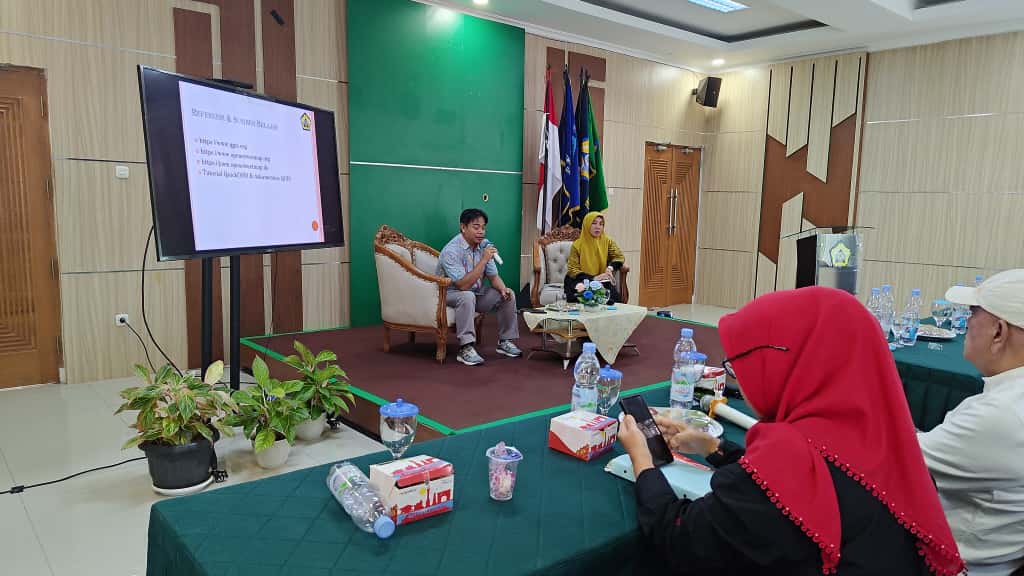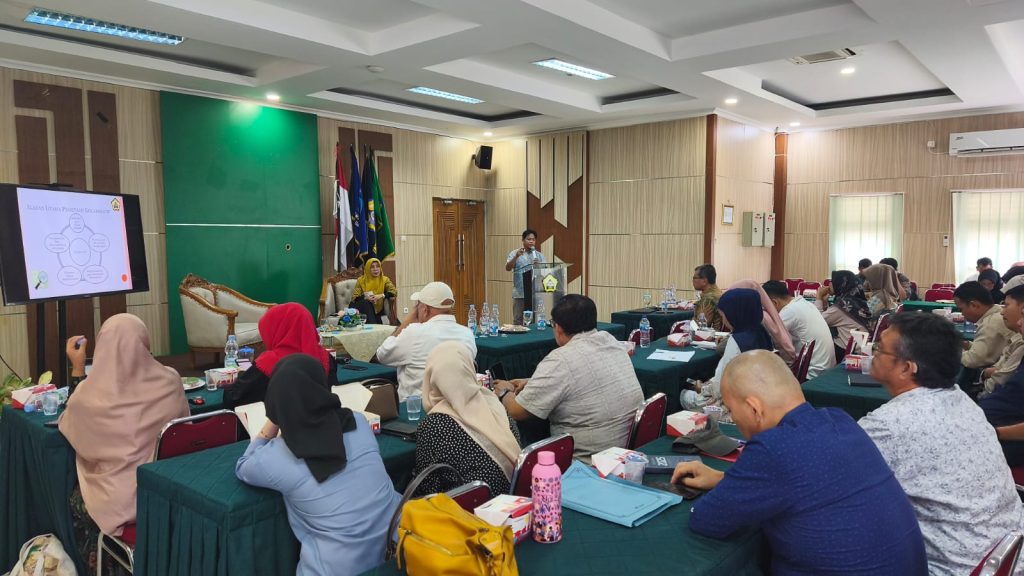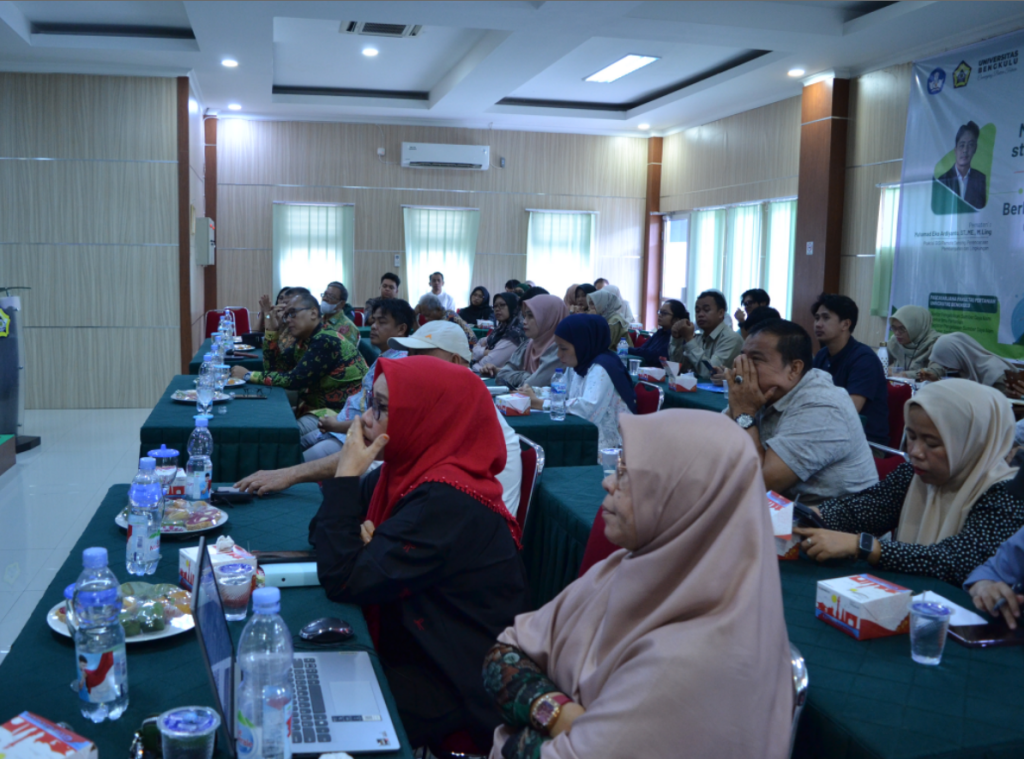
Public Lecture: Community-Based Environmental Management Through GIS Integration and Participatory Mapping
The Master’s Program in Natural Resource Management (PSDA) at the University of Bengkulu organized a public lecture titled “Community-Based Environmental Management: Integration of GIS and Participatory Mapping.” The event was held in collaboration with other graduate programs within the Faculty of Agriculture, aiming to strengthen interdisciplinary cooperation in the field of sustainable natural resource management.
The lecture featured Muhamad Eko Ardiyanto, ST., ME., M.Ling, an expert in Geographic Information Systems (GIS) and Environmental and Development Planning, who has extensive experience in participatory mapping projects across Indonesia. In his presentation, he explained how integrating QGIS, JOSM (Java OpenStreetMap Editor), and OpenStreetMap (OSM) can serve as an effective approach to collect, analyze, and update geospatial data through community participation.

According to Ardiyanto, participatory or collaborative mapping empowers local communities to be directly involved in spatial data collection and local planning processes. “Engaging local people not only improves data accuracy but also fosters a sense of ownership over their environment,” he emphasized. He further noted that open-source technologies such as QGIS and OSM provide cost-effective, flexible, and transparent tools for environmental management and disaster mitigation.
Using a case study from Central Bengkulu Regency, participants were guided through practical demonstrations of how field data can be processed using QGIS, edited in JOSM, and uploaded to OpenStreetMap to build an open-access spatial database. This method offers a powerful way to monitor land-use changes, track deforestation, and support community-based spatial planning.
The event, attended by faculty members, graduate students, and environmental practitioners, underscored the importance of integrating technology and community engagement in sustainable environmental governance. Through this collaboration, the Master’s Program in Natural Resource Management continues to strengthen its role as a center for innovation and knowledge exchange in sustainable resource management and community empowerment.













